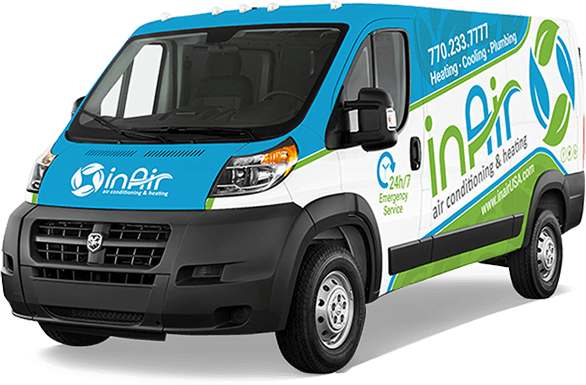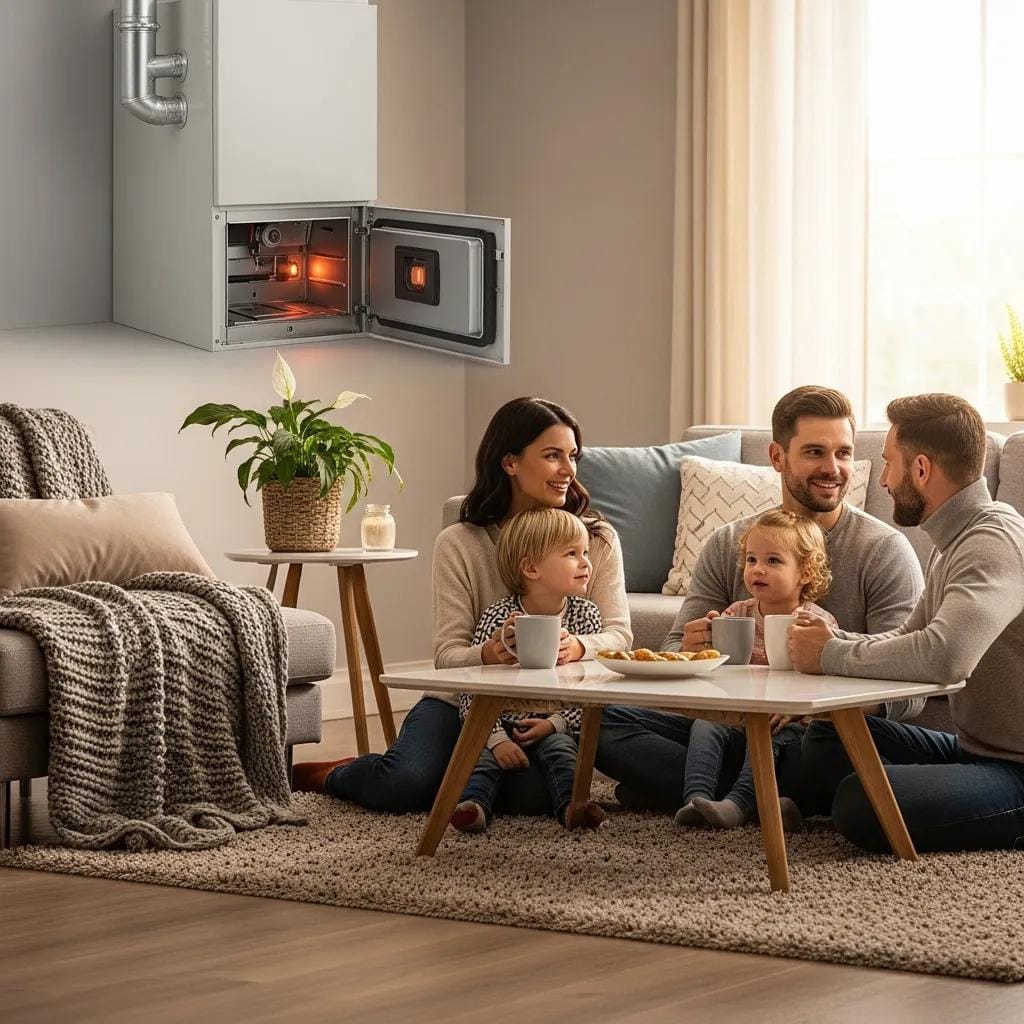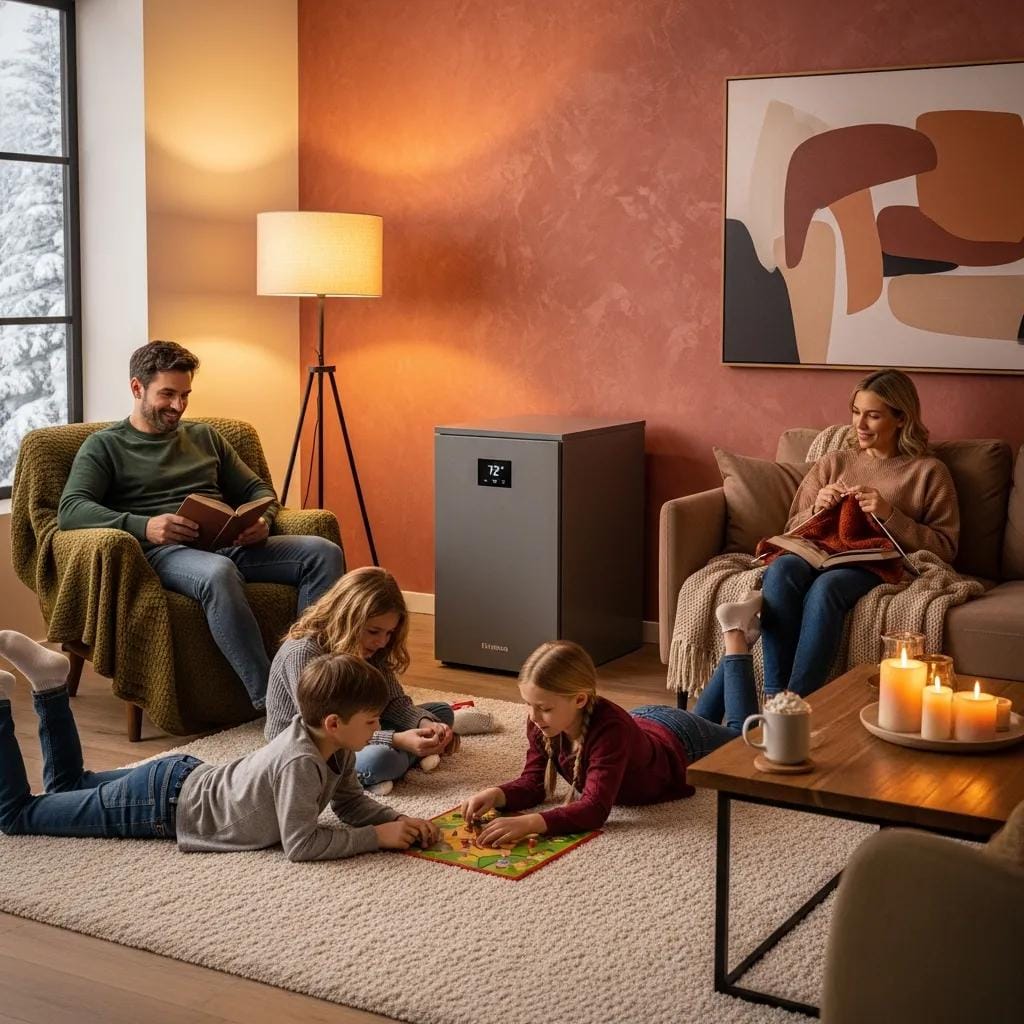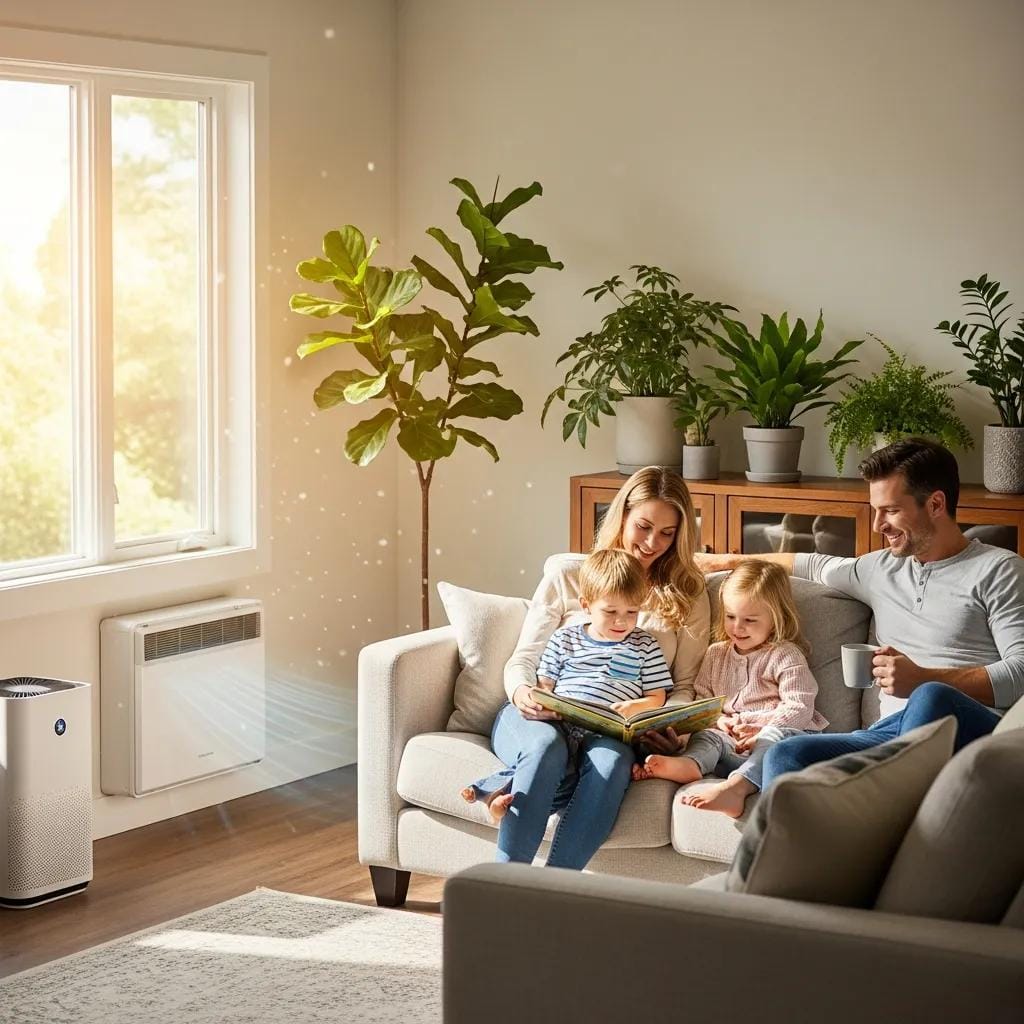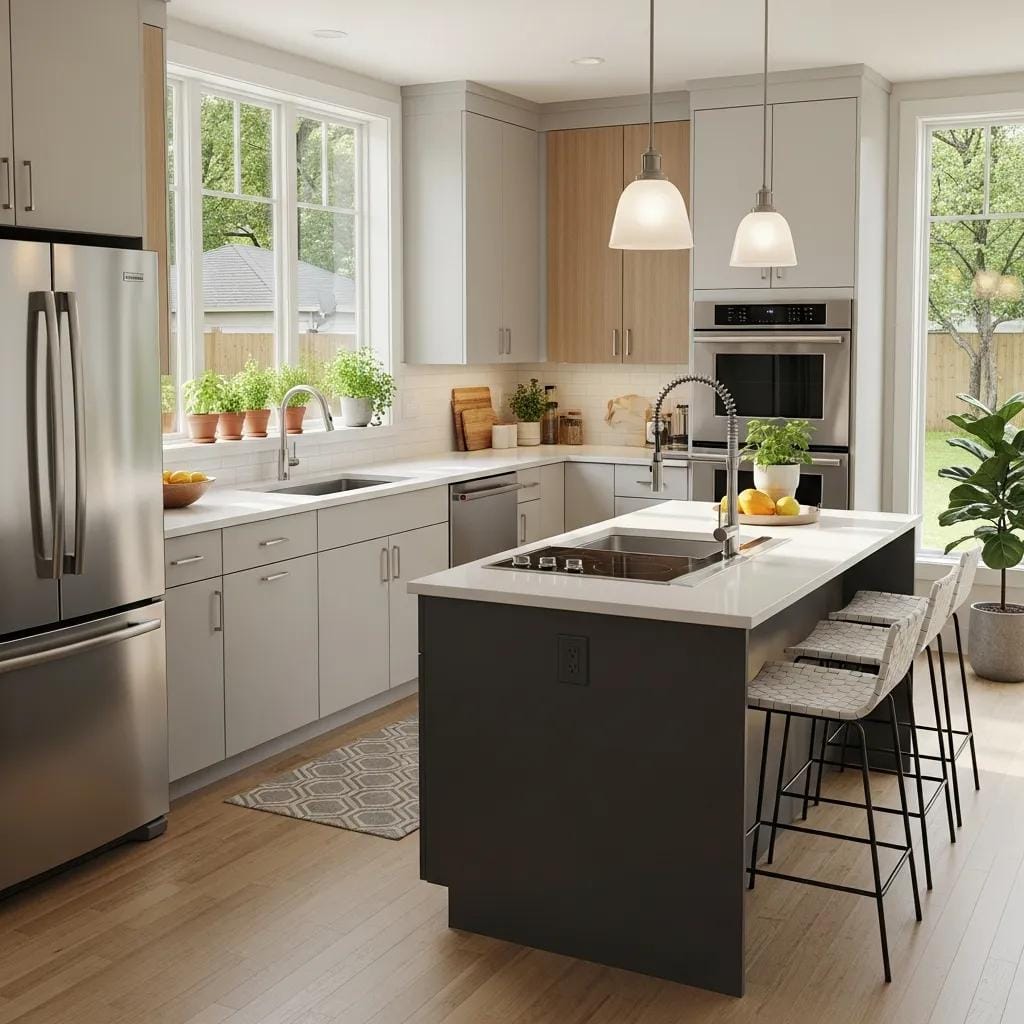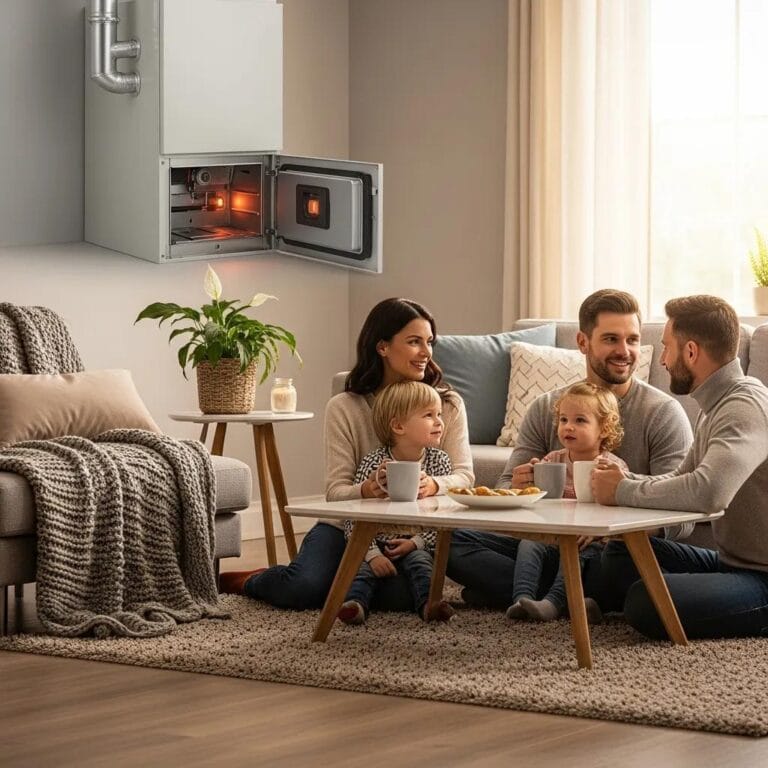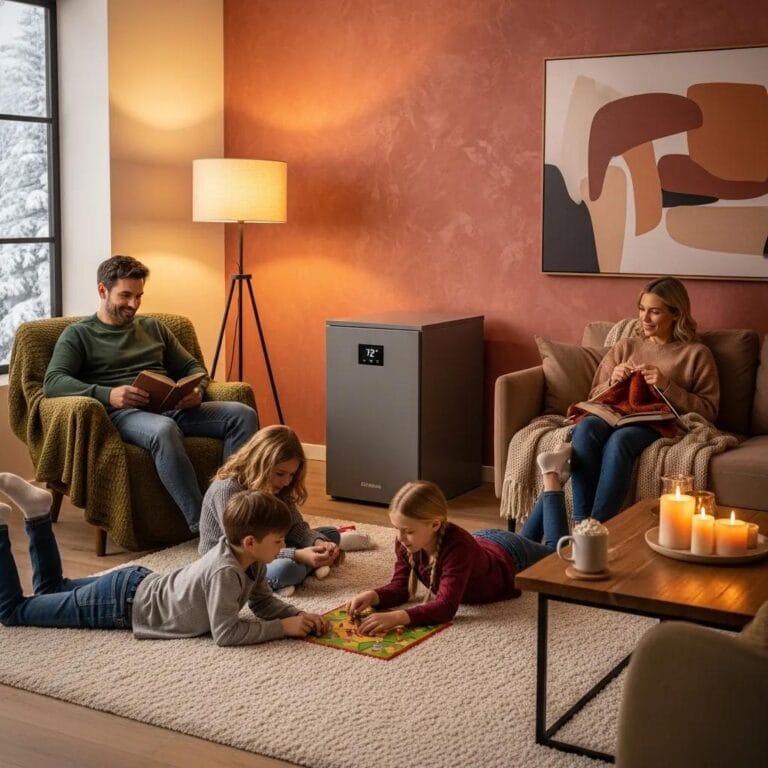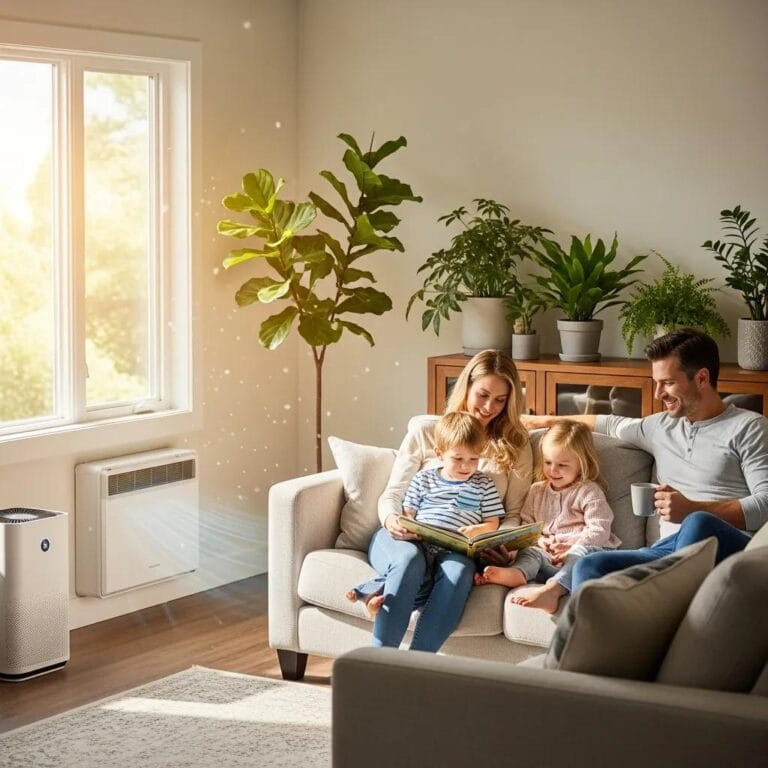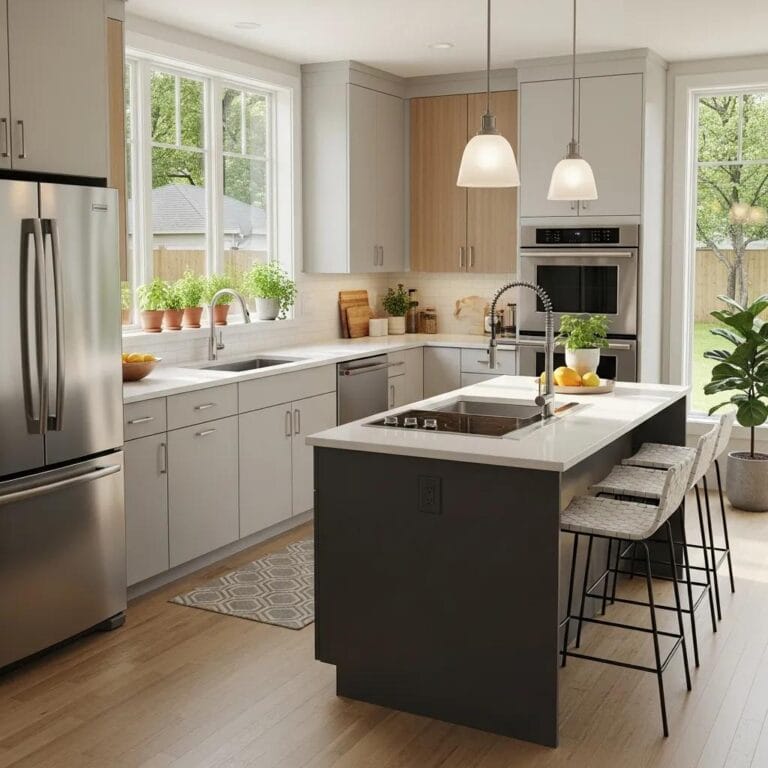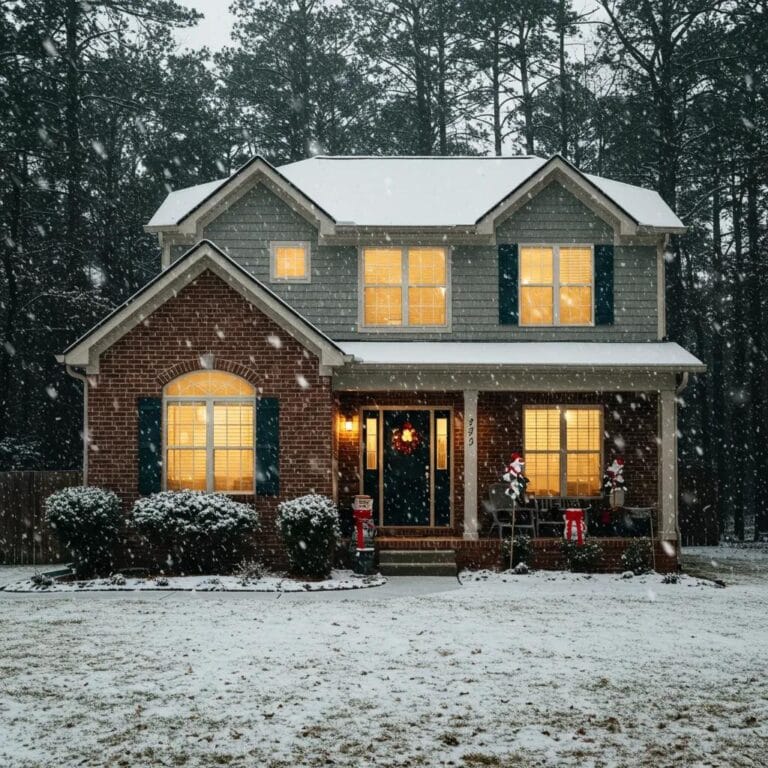Atlanta homeowners are shelling out an average of $254 each month on energy – that’s 2% more than the national average! But here’s the good news: you don’t have to choose between a comfortable home and a hefty utility bill. This guide is packed with smart strategies to reduce energy bills by fine-tuning your HVAC, installing intelligent thermostats, getting a professional home energy assessment, upgrading your water heater, and sealing up your home’s envelope. You’ll discover practical ways to cut down on utility costs while keeping your home at the perfect temperature. We’ll dive into top-notch maintenance, automated climate control, insightful audit findings, efficient hot water solutions, and insulation tricks to help you save big without sacrificing comfort.
Reduce Energy Bills and Keep Your Home Comfortable
What Are the Smartest Ways to Boost HVAC Energy Efficiency in Atlanta Homes?
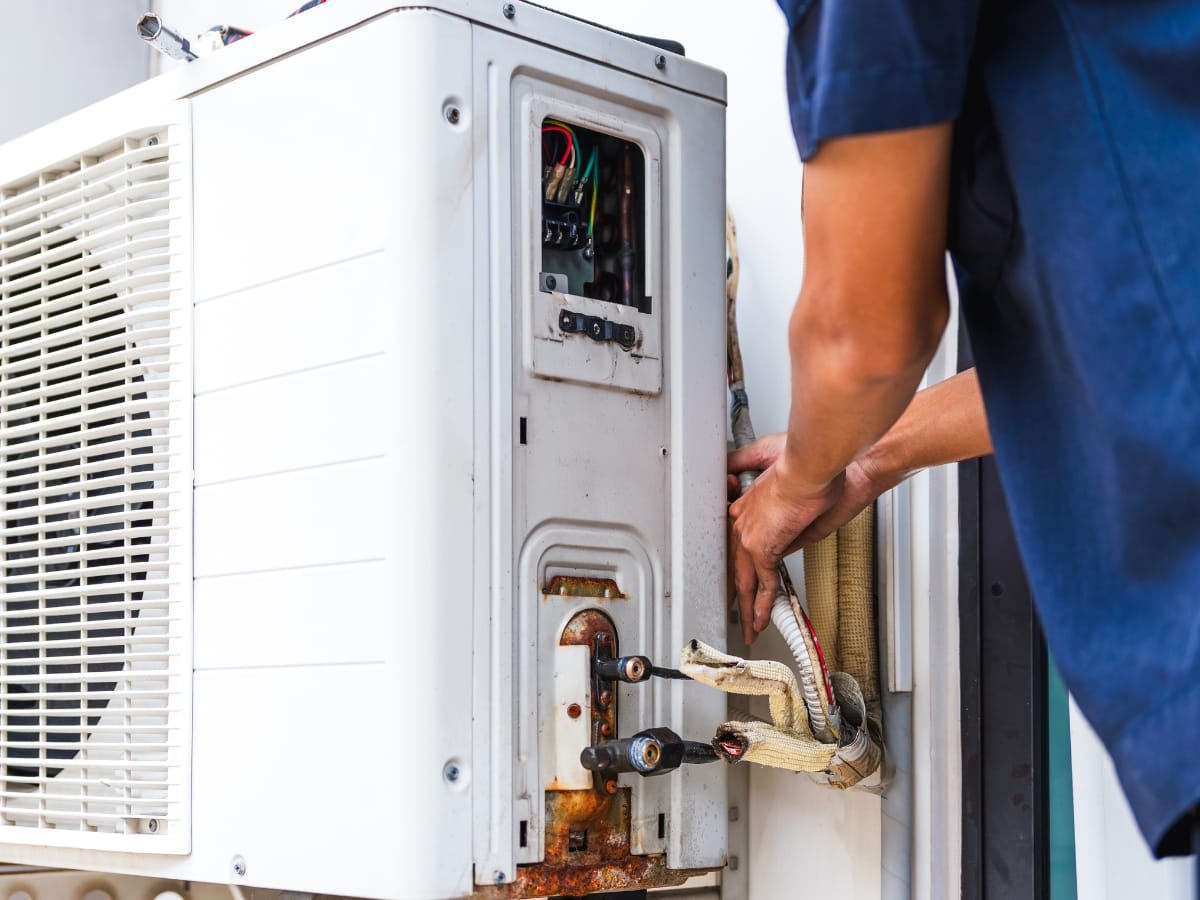
Improving your HVAC system’s efficiency is one of the most reliable ways to reduce energy bills while keeping your home comfortable year-round. In Atlanta’s humid climate, air conditioners and heat pumps work overtime, making regular maintenance and a few key upgrades especially important. By combining professional tune-ups, duct sealing, and filter replacements with modern thermostat technology, homeowners can significantly cut energy use without sacrificing comfort.
How Do Routine AC Tune-Ups Trim Your Energy Bills?
Scheduling annual AC tune-ups keeps your system running at peak performance. During a tune-up, technicians check refrigerant levels, clean coils, and test the compressor. These steps improve heat exchange, meaning the unit doesn’t have to work as hard to cool your home. As a result, you can see efficiency improvements of up to 15%. Regular maintenance also helps extend the life of your air conditioner and prevents small issues from turning into expensive repairs later on.
Why Are Heat Pump Repairs and Upgrades Crucial for Saving Energy?
Heat pumps are essential for year-round comfort in Atlanta homes, providing both heating and cooling through a single system. When refrigerant levels are off or the compressor isn’t functioning properly, the system uses more energy to maintain the desired temperature. Repairing or upgrading a heat pump ensures it operates efficiently throughout the seasons. Newer models offer better performance ratings and can improve seasonal efficiency by as much as 30%, leading to noticeable savings on your monthly utility bills.
How Does Sealing Your Ducts Supercharge HVAC Efficiency?
Leaky ductwork is one of the biggest hidden energy wasters in many homes. Small gaps or cracks allow conditioned air to escape into walls, attics, or crawl spaces, forcing your HVAC system to work longer to achieve the same temperature. Sealing ducts keeps the air you’ve already paid to heat or cool inside your living areas, improving system performance by up to 20%. Duct sealing also helps maintain consistent temperatures from room to room and improves indoor air quality by preventing dust and allergens from being drawn in.
What’s the Big Deal About Replacing Air Filters for Lower Costs?
Replacing your air filters regularly is one of the simplest and most cost-effective ways to reduce energy bills. Dirty filters restrict airflow, making your system work harder to circulate air through the ducts. Clean filters help maintain steady airflow, reduce strain on your HVAC components, and keep efficiency levels high. Changing filters every one to three months can lower energy use by around 5% while also improving indoor air quality.
Reducing your home’s energy bills starts with consistent HVAC care. Tune-ups, duct sealing, heat pump maintenance, and regular filter changes all work together to maximize efficiency and comfort. When combined with smart thermostats and humidity control, these steps create a system that performs better, lasts longer, and saves you money year after year.
How Can Smart Thermostats Help Atlanta Homeowners Cut Down on Energy Bills?
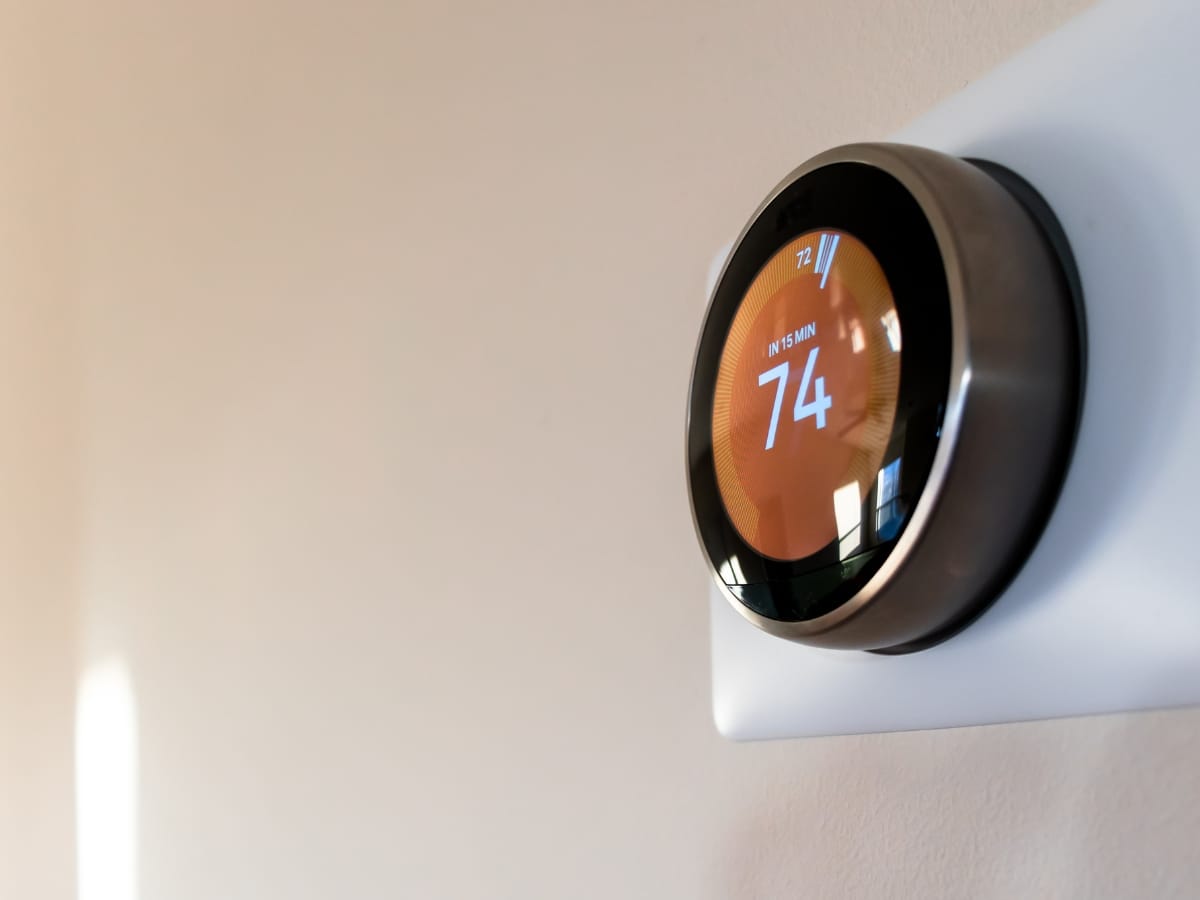
Smart thermostats are one of the most effective ways to reduce energy bills in Atlanta homes, especially given the area’s hot summers and mild winters. These devices automatically adjust temperature settings based on your schedule, occupancy, and even changes in local weather. By learning your habits and optimizing heating and cooling cycles, smart thermostats can reduce HVAC runtime without sacrificing comfort. Many homeowners experience savings of around 10 to 15 percent on their annual energy costs after switching to a smart model.
Programmable thermostats also help by letting you create temperature schedules, but smart thermostats take it further. Their Wi-Fi connectivity allows for remote control through your smartphone, while built-in learning algorithms fine-tune your home’s temperature automatically for maximum efficiency.
What Are the Advantages of Using Programmable and Smart Thermostats?
Programmable thermostats are a solid choice for anyone looking to manage energy use more efficiently. They let you set temperature setbacks during times when you’re asleep or away, reducing unnecessary heating and cooling. Smart thermostats, on the other hand, learn from your daily routines and adjust automatically. This means they can detect when you leave for work, when you return home, or when outdoor conditions change, making constant manual adjustments unnecessary.
Both options help minimize wasted energy and keep your indoor climate comfortable year-round. Smart thermostats also provide detailed energy reports, helping you see where and when you’re using the most power so you can make informed adjustments.
How Do Wi-Fi and Learning Capabilities Make Thermostats Smarter?
Wi-Fi connectivity gives homeowners complete control over their HVAC systems from anywhere using an app. Whether you’re coming home early or heading out for the weekend, you can adjust your temperature remotely with just a few taps. Beyond convenience, smart thermostats analyze data from your daily patterns, local weather, and historical use to automatically optimize heating and cooling cycles. This proactive temperature management ensures your system runs only when needed, significantly lowering energy consumption over time.
Some models can even integrate with voice assistants and smart home systems, providing a seamless and hands-free experience that enhances comfort while cutting waste.
What’s Involved in Installing a Smart Thermostat in Atlanta?
Installing a smart thermostat typically involves connecting it to your HVAC system’s control wiring, configuring sensors, and linking it to your home’s Wi-Fi network. Once set up, the device begins learning your habits and adjusting temperatures accordingly. In Atlanta, where energy costs can climb during summer cooling seasons, a properly installed and calibrated thermostat can make a noticeable difference in monthly expenses.
Smart thermostats are more than just a convenience—they’re an investment in long-term energy efficiency. By combining intelligent temperature control, real-time monitoring, and adaptive learning, they help Atlanta homeowners reduce energy bills while keeping their homes comfortable in every season.
Why Should Atlanta Homeowners Get a Home Energy Audit?
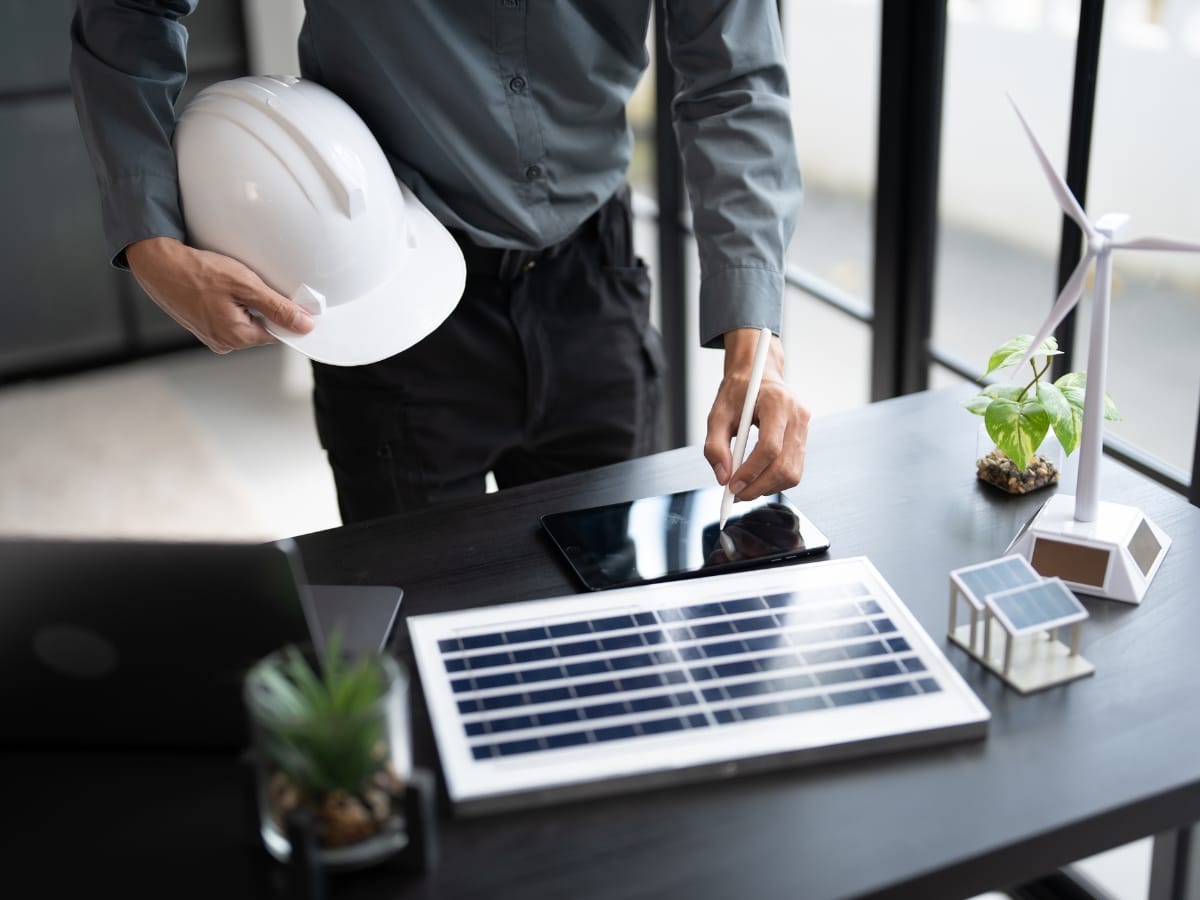
A home energy audit is one of the most effective ways to reduce energy bills and improve overall comfort. This professional assessment takes a deep look at how your home uses and loses energy. Using tools like blower door tests, thermal imaging, and duct leakage analysis, an audit identifies exactly where inefficiencies occur. Once these problem areas are mapped out, you’ll have a clear plan for upgrades that deliver the biggest impact on energy savings.
A typical home energy audit begins with a full evaluation of how well your home’s structure and systems retain conditioned air. This includes testing for air leaks, examining insulation quality, and inspecting ductwork for gaps or loose seals. The process helps pinpoint areas where energy escapes, often revealing problems that would otherwise go unnoticed.
What Does a Home Energy Audit Cover?
A thorough audit examines your home from top to bottom. The blower door test measures how airtight the home is by simulating pressure differences and identifying leaks around doors, windows, and other openings. Infrared thermal imaging detects heat loss in walls and ceilings, showing where insulation may be missing or damaged. Inspectors also check attic insulation depth, assess HVAC performance, and evaluate how well ducts are sealed.
At the end of the audit, homeowners receive a detailed report highlighting energy losses, estimated savings, and specific recommendations. This data-driven approach makes it easy to decide which upgrades—like insulation improvements or HVAC adjustments—will yield the best return on investment.
How Can an Energy Audit Help You Save Money?
An energy audit translates hidden inefficiencies into measurable savings opportunities. By analyzing the collected data, auditors calculate the potential return from each suggested improvement. For example, sealing air leaks and improving insulation can reduce heating and cooling costs by up to 20%. Replacing older HVAC units or adjusting ductwork may deliver even greater savings, depending on your system’s age and condition.
These insights allow homeowners to prioritize upgrades that will have the biggest impact on both comfort and long-term energy reduction. In a city like Atlanta, where summers are hot and humid, these improvements can significantly reduce the strain on your air conditioning system.
What Should Atlanta Homeowners Expect During an Energy Audit?
During the process, technicians use calibrated equipment to measure airflow, locate leaks, and evaluate temperature differences throughout your home. They’ll also examine your HVAC system, windows, doors, and insulation for potential energy loss. The goal is not only to identify where energy waste occurs but also to create a practical plan that fits your budget and efficiency goals.
For Atlanta homeowners looking to reduce energy bills, a home energy audit is a smart first step. It provides the data and professional insight needed to make strategic upgrades that improve comfort, lower monthly costs, and boost your home’s overall efficiency year-round.
What Water Heating Solutions Can Reduce Energy Bills Without Compromising Comfort?
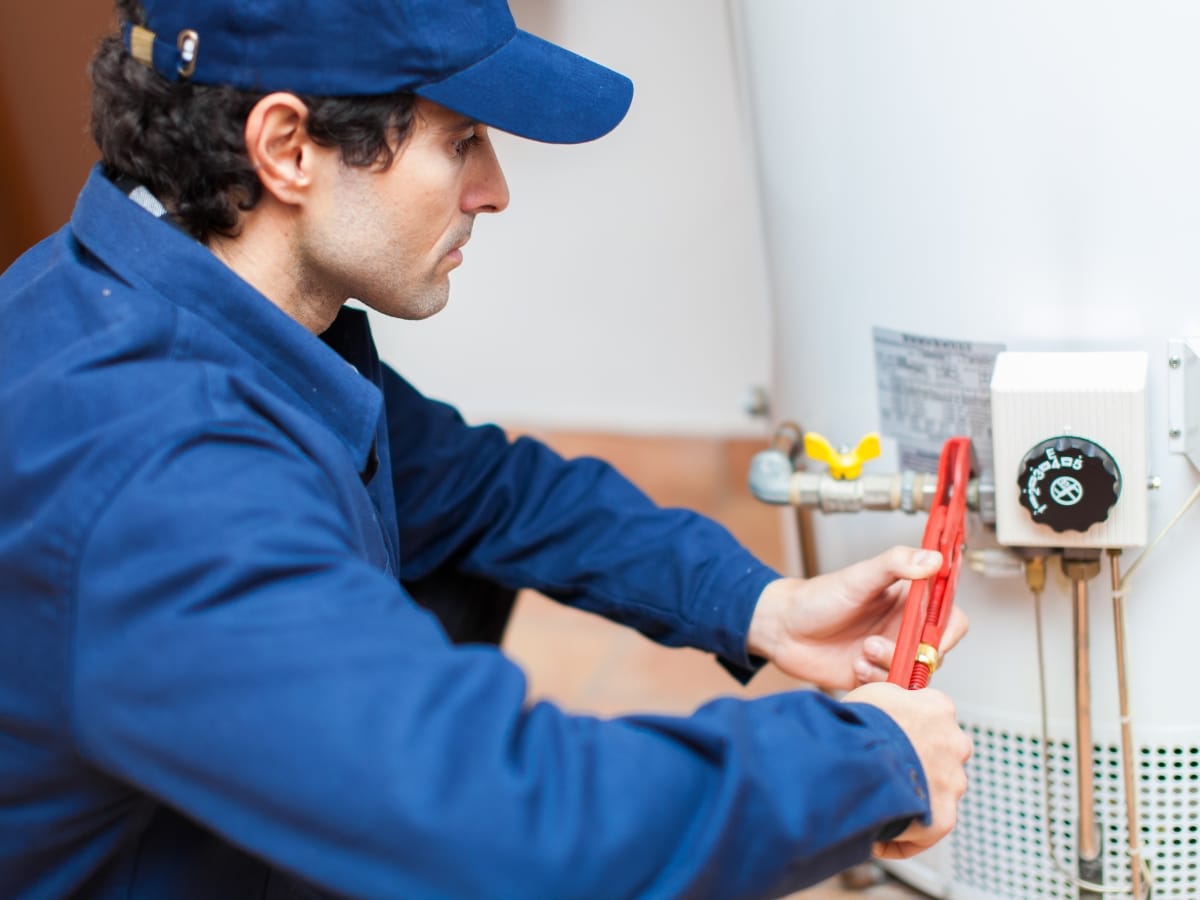
Reducing water heating costs without losing comfort comes down to efficiency. By using tankless technology, improving insulation, adjusting thermostat settings, and keeping up with maintenance, you can minimize energy waste while ensuring a steady supply of hot water. Each of these steps targets a common source of heat loss or inefficiency, helping homeowners lower utility costs year-round.
How Do Tankless Water Heaters Save More Energy Than Traditional Ones?
Tankless water heaters, also known as on-demand units, heat water only when it’s needed. This eliminates the standby energy loss that occurs in traditional tank systems, where water is kept hot around the clock. Because there’s no storage tank to maintain at a constant temperature, tankless models can reduce water heating expenses by as much as 30%. They’re also more compact and deliver consistent hot water on demand, making them an ideal solution for energy-conscious homeowners looking to reduce energy bills.
Why Is Insulating Your Water Heater So Important for Energy Savings?
Adding insulation to your storage tank and exposed hot water pipes is a simple yet effective way to retain heat and prevent unnecessary energy loss. Without insulation, water stored in the tank cools quickly, forcing the heater to cycle more often. A well-insulated tank can reduce standby heat loss and save up to 10% on energy costs. This small upgrade also helps maintain steady water temperatures, improving both comfort and efficiency.
What Are the Best Water Heater Temperature Settings for Saving Energy?
Most experts recommend setting your water heater to 120°F for optimal performance. Many homes have water heaters set to 140°F by default, which wastes energy and increases the risk of scalding. Lowering the temperature to 120°F not only saves between 5% and 10% on water heating costs but also helps your heater last longer by reducing stress on internal components. This setting still provides plenty of hot water for everyday tasks like showers, dishwashing, and laundry.
How Does Regular Water Heater Maintenance Affect Your Energy Bills?
Routine maintenance is essential for keeping your system efficient. Over time, sediment builds up in the bottom of the tank, insulating the water from the heating element and forcing the system to use more energy. Flushing the tank once a year, checking pressure relief valves, and inspecting for corrosion help maintain peak performance. These simple steps can restore lost efficiency and extend the lifespan of your unit, preventing unexpected repair costs.
Small changes in how you heat and maintain your water can make a noticeable difference in monthly expenses. Whether you switch to a tankless system, add insulation, adjust your thermostat, or schedule annual maintenance, each improvement helps reduce energy bills while keeping your home comfortable and efficient.
How Can Insulation and Air Sealing Boost Home Comfort and Cut Energy Costs in Atlanta?
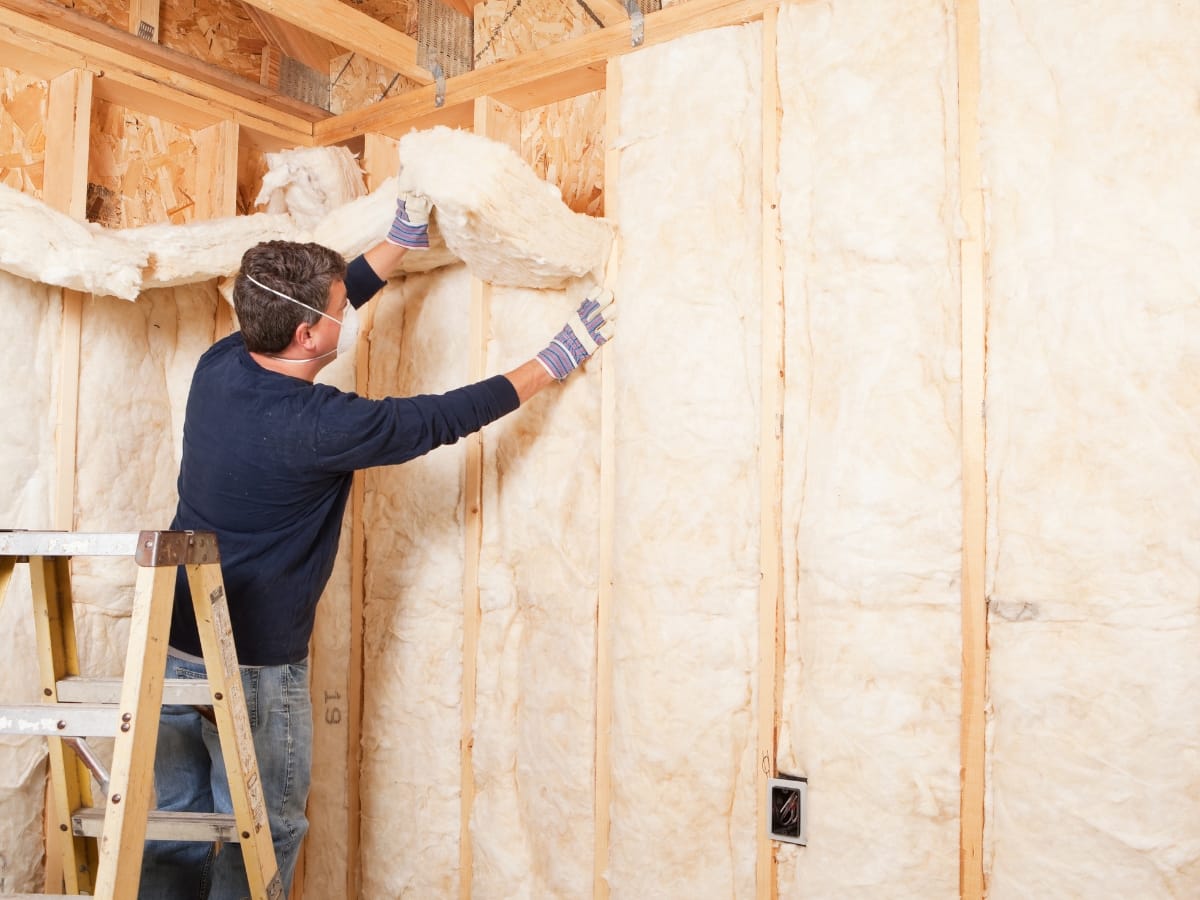
Improving insulation and air sealing is one of the most effective ways to reduce energy bills while keeping your Atlanta home comfortable year-round. These upgrades prevent unwanted heat transfer and air leaks that force your HVAC system to work harder than necessary. When your home is properly sealed and insulated, indoor temperatures remain consistent, energy waste is minimized, and your overall comfort improves.
Different insulation materials serve distinct purposes. Attic insulation helps stop rising heat from escaping during winter and blocks solar heat from entering during summer. Wall insulation stabilizes indoor temperatures, while spray foam combines insulation with air sealing for maximum performance. Together, these materials form a thermal barrier that keeps conditioned air inside where it belongs.
What Insulation Types Work Best for Atlanta Homes?
Atlanta’s hot summers and mild winters require insulation that balances heat resistance and air sealing. In most homes, blown-in or batt insulation works best in attics, as it helps prevent heat gain from the roof. Fiberglass insulation is ideal for wall cavities because it’s cost-effective and provides excellent thermal resistance. For homeowners looking for a premium solution, closed-cell spray foam delivers superior performance by sealing cracks, reducing drafts, and offering higher R-values per inch than traditional materials.
Proper installation is key to achieving the rated performance of any insulation. Even high-quality materials can underperform if gaps, compression, or moisture intrusion occur. Regular inspections ensure insulation remains intact and effective over time.
How Do Weatherstripping and Caulking Help Seal Air Leaks?
Air leaks are one of the biggest sources of wasted energy in homes. Sealing them with weatherstripping and caulking can prevent as much as 15 percent of your heating and cooling loss. Weatherstripping is best used around doors and operable windows to stop air infiltration, while caulk works around stationary joints such as window frames and wall openings.
These small improvements make a big difference in maintaining indoor comfort. By keeping conditioned air inside and outdoor air out, your HVAC system runs more efficiently, leading to noticeable savings on your monthly utility bills.
Why Are Energy-Efficient Windows and Doors Important?
Upgrading to energy-efficient windows and doors enhances both comfort and efficiency. Windows with low-emissivity (low-E) coatings reduce heat gain from sunlight while still allowing plenty of natural light inside. Insulated frames and multi-pane glass help maintain a stable indoor temperature, reducing the strain on your HVAC system. Well-insulated exterior doors also prevent drafts and heat loss, especially in older homes.
A combination of proper insulation, air sealing, and energy-efficient windows creates a tight building envelope that reduces energy loss and keeps your home more comfortable throughout the year. By investing in these improvements, Atlanta homeowners can significantly reduce energy bills while creating a quieter, healthier, and more climate-controlled living environment.
Conclusion
Lowering your energy bills doesn’t mean you have to sacrifice comfort in your Atlanta home. With the right HVAC upgrades, smart thermostats, and proactive maintenance, you can achieve significant savings while enjoying a consistently comfortable living environment. At inAir Heating & Air, we specialize in energy-efficient HVAC solutions tailored to our local climate, helping you reduce costs without compromising on quality. Ready to start saving? Call (770) 233-7777 or submit an HVAC request online today for a professional assessment. Let us help you create a more efficient—and comfortable—home.




